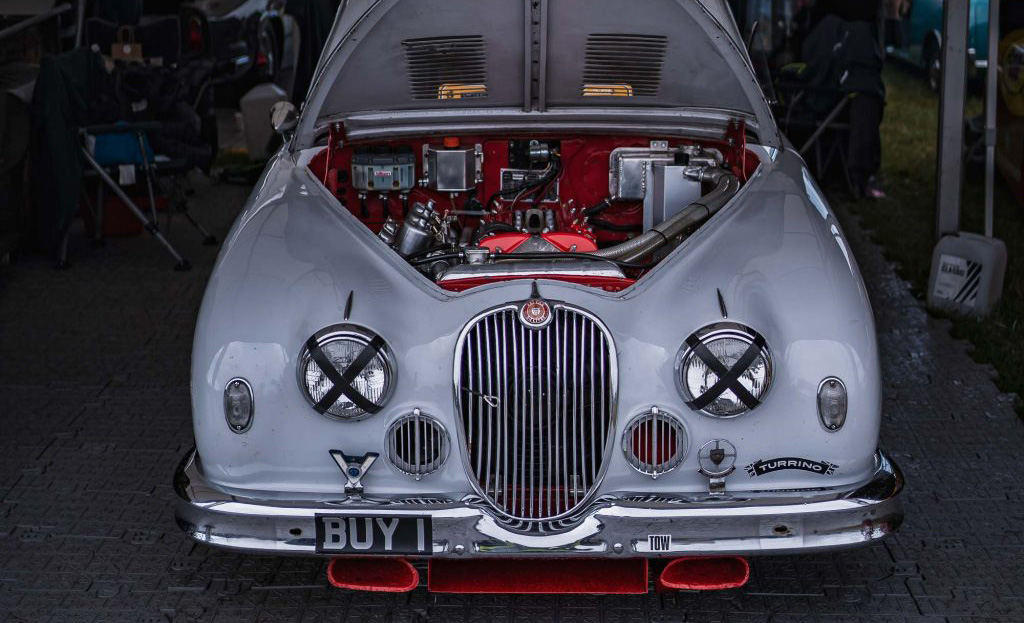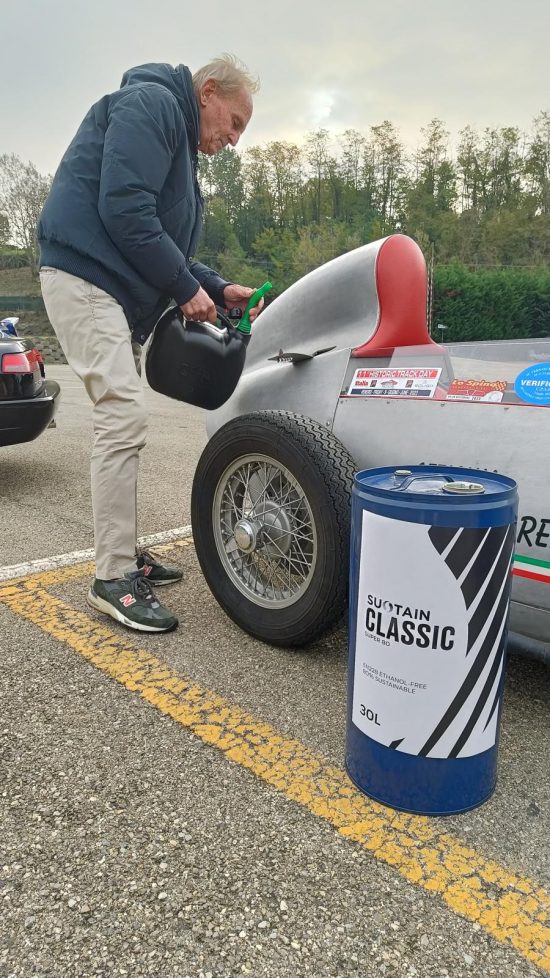With hundreds of different fuel grades on the market, and not every fuel compatible with every engine, it’s prudent to explore a fuel’s suitability before filling up your tank. There are certain areas of motoring where caution is even more crucial, these include:
- Racing, where high-performance engines are put to the test.
- Classic car motorsports, where older engine parts can clash with certain fuel components.
As you can imagine, as a company specialising in fuel production, we’d always advise seeking guidance from an expert to assess whether a fuel is safe to use in your engine. However, we also know that many people will start their journey by researching the risks and opportunities. As such, we’ve written this article to help highlight some of the key points you may wish to consider and qualify when considering switching fuels.
Can the wrong fuel damage my engine?
Yes. While many modern fuels of similar types can be blended or used interchangeably within an engine, this doesn’t work in every situation. In fact, using the wrong type of fuel can cause serious damage to an engine, reduce performance, increase emissions, and pose safety risks.

How do I know if a fuel is safe for my car?
As mentioned above, the only way to be certain about whether a fuel is safe for your vehicle is to speak to an expert. This could be an engine builder or someone with experience in creating fuels. Every car has its own history and requirements. On top of that, some engines may have been modified or mapped, which can adjust their fuel tolerances. However, there are certain checks and factors you should consider when narrowing down your options. Here we list a few.
Core checks:
- Check your vehicle handbook: Manufacturers will make recommendations for fuel type (diesel or petrol), ethanol content (the levels of ethanol your engine can tolerate without damage), and octane rating (the levels required to prevent knocking and pre-ignition).
- Look for certification labels: UK fuels meet BSI (British Standards Institution) and EU EN standards.
- Seek expert advice: Consult mechanics or fuel specialists for classic cars and those with high-performance engines.
If you’re fuelling a classic car, you may also with to consider the following:
- Standards: Ensure your fuel meets the EU’s EN228 standard.
- Ethanol content: Check to see whether it contains ethanol. Many older cars can’t use fuels with ethanol due to its ability to damage older engines. You can read more about this here.
- If browsing the SUSTAIN range, it’s worth noting that any fuel in our Classic collection or with the letter ‘C’ in its name will contain <1% ethanol content, as these fuels are tailored for older vehicles.
If you’re fuelling a race car, we’d also advise considering the below:
- Terminology: Treat the term ‘drop in fuels’ with caution, especially in racing. When you’re testing high-performance engines in high-pressure situations, you need a fuel that’s tailored for the task. Anything less could damage your engine.
- Octane ratings: Have you got enough knock protection from your fuel? Knock protection prevents premature combustion that can damage the engine, reduce performance, and limit the car’s ability to operate at high compression and boost levels.
- Air/fuel ratio: Is the new fuel similar to those you’ve used in the past? Are you running a carburettor, or is it a modern or mapped engine? Air/fuel ratio is critical in race cars because it determines how precisely fuel mixes with incoming air for optimal combustion, directly impacting engine power, efficiency, and throttle response.
- Density: How heavy is the fuel? Fuel density is important to race cars because it directly affects the amount of energy available per unit volume, influencing power output, weight distribution, and fuel efficiency during a race.

Myth-busting the common misconceptions about fuel and engine damage
Many misconceptions exist around the topic of fuel compatibility and engine damage. Here we tackle a few.
Myth: Higher-octane ratings can’t harm your vehicle.
Truth: In most cases, higher-octane fuels will not harm your vehicle. However, if you have an unbounded Electronic Control Unit (ECU) in a modern racing vehicle, it will keep advancing the timing, looking for the knock. It will keep pushing, further and further, until the engine ends up stressing itself. However, if an engine includes components that are built to deal with higher loads, it may stop when it needs to.
Myth: Sustainable fuels pose greater risks for engine health than fossil fuels.
Truth: SUSTAIN fuels meet strict safety regulations and are tested for compatibility. Our fuels have been used in hundreds of classic, racing and specialist vehicles in numerous events across the globe. With any fuel, sustainable or not, the risk would only come from low-quality products or poor compatibility between the engine and fuel.
Myth: Premium fuels deliver better results, purely because of the octane rating.
Truth: Many people think that premium fuels (say a supergrade 97/98 compared to a standard 95) improve your performance thanks to the higher-octane rating. However, that isn’t the only factor at play. Premium fuels often come with an additive package. If it’s a ‘keep clean’ package, it will help maintain the engine’s optimum operational conditions (or as close as your engine is to those conditions when you introduce the fuel). If it’s a ‘get clean’ additive package, it can improve the way your engine runs as the additives are working beyond maintenance mode to try and improve conditions and return to the optimum. As a result, you may get a car that’s not designed to run on a higher-octane fuel, but which runs better on it because of the additive package it comes with.

What should I look for in a trusted fuel supplier?
Big brand forecourt fuels are heavily tested. As such, their products tend to deliver credible and reliable results. If, however, you’re exploring products from specialist fuel suppliers, make sure they’re open to discussing how they’ve tested their fuels and who they work with.
Through our creators Coryton, SUSTAIN:
- Invests heavily in testing our products.
- Has access to a dedicated analytics laboratory that develops over 4,000 fuel blends a year.
- Works with engine builders, automotive manufacturers and restoration experts to scrutinise our fuels regularly.
- Partners with global brands such as Mazda and Bentley to put our fuels to the test in various record-breaking scenarios.
What should I consider when switching to sustainable fuel?
When using SUSTAIN products, you should factor in the same considerations you’d have to make when switching to conventional fossil fuel products. The fact that the fuel is sustainable is not an additional variable, because we create it to mimic fossil fuel chemistry.
As you can see from the above, the process of changing fuels should be considered carefully, especially if your car wouldn’t usually run on standard forecourt petrol. If you need any further advice on switching products or you’d like to discuss the sustain range in more detail, please contact our team.
Disclaimer: The author and publisher aren’t responsible for any issues, damages, or losses from using this information.





